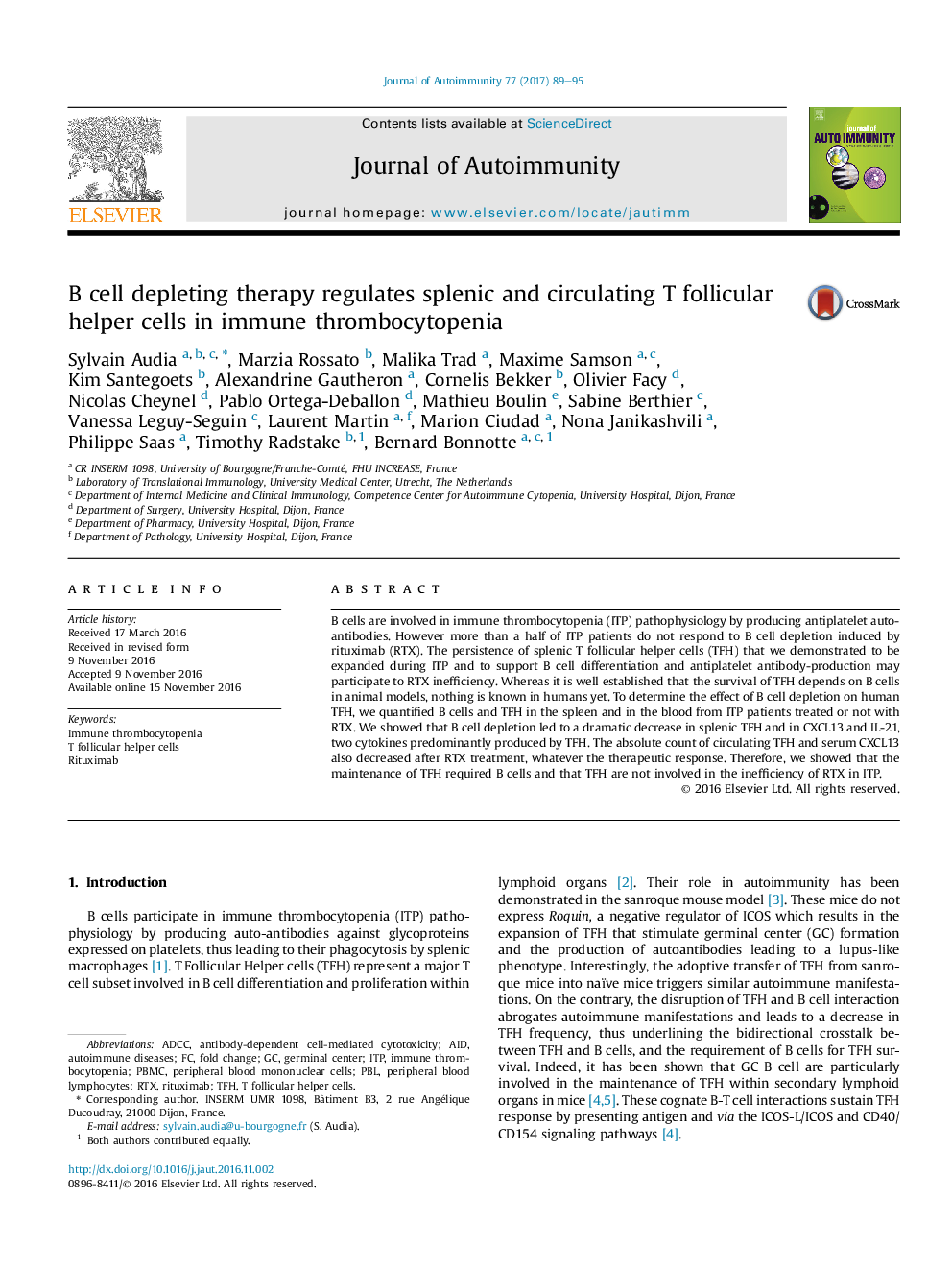| Article ID | Journal | Published Year | Pages | File Type |
|---|---|---|---|---|
| 5667920 | Journal of Autoimmunity | 2017 | 7 Pages |
â¢B cells are required for TFH maintenance in human spleen.â¢B cell depleting therapy in humans decreases TFH and CXCL13, in the spleen and in the circulation.â¢TFH are not involved in the therapeutic inefficiency of RTX in ITP.
B cells are involved in immune thrombocytopenia (ITP) pathophysiology by producing antiplatelet auto-antibodies. However more than a half of ITP patients do not respond to B cell depletion induced by rituximab (RTX). The persistence of splenic T follicular helper cells (TFH) that we demonstrated to be expanded during ITP and to support B cell differentiation and antiplatelet antibody-production may participate to RTX inefficiency. Whereas it is well established that the survival of TFH depends on B cells in animal models, nothing is known in humans yet. To determine the effect of B cell depletion on human TFH, we quantified B cells and TFH in the spleen and in the blood from ITP patients treated or not with RTX. We showed that B cell depletion led to a dramatic decrease in splenic TFH and in CXCL13 and IL-21, two cytokines predominantly produced by TFH. The absolute count of circulating TFH and serum CXCL13 also decreased after RTX treatment, whatever the therapeutic response. Therefore, we showed that the maintenance of TFH required B cells and that TFH are not involved in the inefficiency of RTX in ITP.
